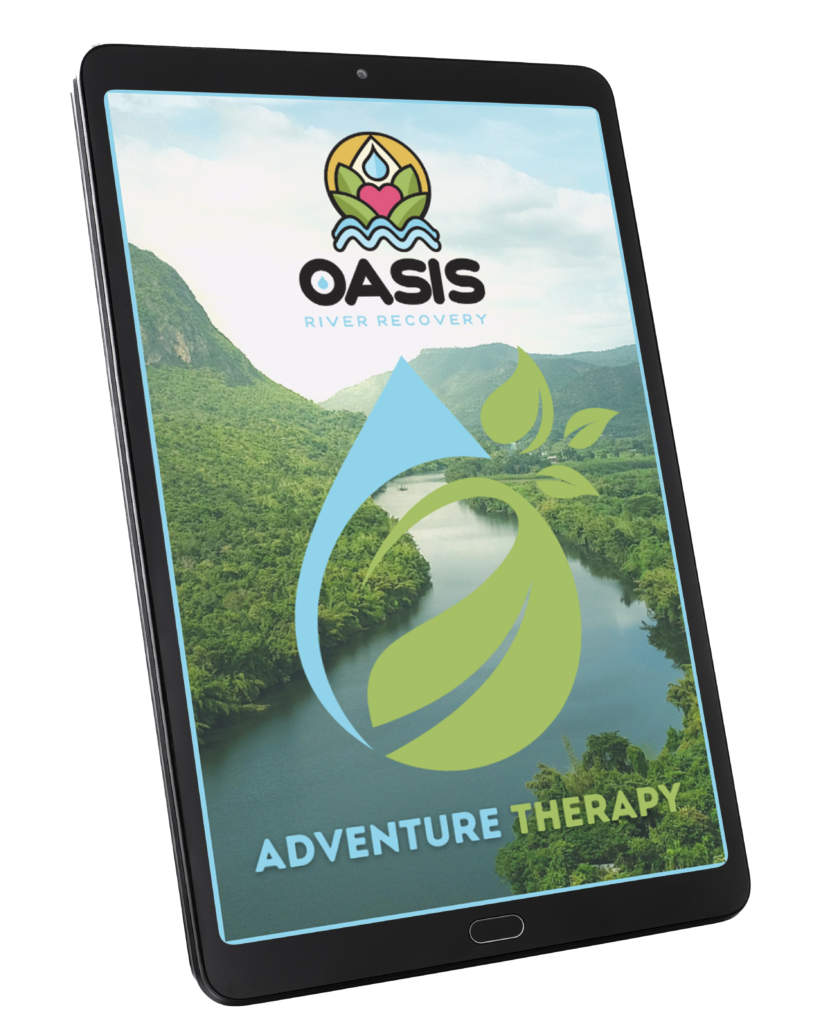HEALING MODALITIES
Oasis River Recovery uses trauma-informed care in addiction recovery to help treat substance abuse, mental health issues, and co-occurring disorders resulting from traumatic experiences.
Substance use disorders, addictive behavior, and other unhealthy coping mechanisms usually develop when someone is struggling to cope with symptoms of trauma, such as painful emotional or physical feelings, nightmares, and flashbacks.

Trauma-informed care, or trauma therapy, aims to treat the psychological impact of trauma and give individuals with the necessary skills and resources to begin healing. Trauma can develop from the death of a loved one, childhood abuse, parental neglect, or experiencing a natural disaster.
Trauma-informed care uses several evidence-based therapy methods that incorporate the scientific knowledge of how the brain processes trauma, aiming to address the symptoms of trauma rather than the trauma experience itself. These approaches help manage symptoms and prevent re-traumatization of patients during their treatment plan. Oasis River Recovery values and uses the six core principles of trauma-informed care laid out by the Substance Abuse and Mental health Services Administration (SAMHSA).

1. Safety
Our treatment program values our patients and healthcare providers' physical and psychological safety.
2. Trustworthiness and transparency
We aim to be transparent about our treatment plans in order to build and maintain trust with our patients.
3. Peer support
Patients with shared experiences are encouraged to share and support each other.
4. Collaboration and mutuality
Treatment providers and patients work together to build individualized treatment plans.
5. Empowerment, voice, and choice
Patient's and clinician's strengths are recognized, built on, and validated.
6. Cultural, historical, and gender issues
Biases, gender norms, historical trauma, and stereotypes are recognized and addressed.

Our staff will choose a trauma-informed approach based on the effects, prevalence, and type of trauma experienced by an individual and their specific therapeutic objectives. Some of our trauma-informed practices include:
1. EMDR
EMDR therapy aims to alter how the brain stores the memory, resulting in decreased emotional reactions linked with the trauma.
2. Trauma-Informed Yoga Therapy
This treatment option helps people recognize their physical sensations to reduce anxiety, stress, and strain using self-awareness and grounding.
3. Cognitive Behavioral Therapy (CBT)
CBT aims to recognize distorted or distressing beliefs linked to a traumatic event and build healthy coping skills to deal with emotional stress.
4. Psychodynamic Therapy
This treatment explores the patient's past and adverse childhood experiences (ACEs) to help them manage and understand emotions.
5. Dialectical Behavior Therapy (DBT)
DBT focuses on building emotional intelligence and self-awareness to enhance interpersonal relationships.

6. Acceptance and Commitment Therapy (ACT)
ACT helps people understand and accept their emotions as natural responses to certain situations and history of trauma without allowing them to interfere with their aspirations in life.
7. Humanistic/Experiential Therapy
This approach focuses on the person as a whole, taking into account their strengths and capacity for self-healing
8. Interpersonal Therapy
Interpersonal Therapy is based on the belief that certain mental health disorders can be inherited or have a biological predisposition and that stressful life events can trigger symptoms.

Oasis River Recovery strives to provide a unique recovery program unlike anything offered in the area. By incorporating evidence-based treatment, experiential therapy methods, and holistic healing modalities, we've created a program that blends into our location's natural beauty
Trauma-informed care has various advantages for patients, healthcare providers, and staff. Trauma survivors often struggle to maintain healthy and honest relationships with their healthcare providers, fearing the stigma behind post-traumatic stress disorder and other effects of trauma. By addressing trauma within a substance abuse treatment plan, patients can receive better healthcare, establish long-term trust with their providers, and support their goals toward lifelong sobriety.

If you or someone you know is struggling with attachment anxiety and substance abuse, reach out to Oasis River Recovery. Our team of professionals uses attachment theory to explore different attachment disorders to create a treatment plan that fits your specific needs. Addiction recovery and forming healthy adult attachments is not something you need to do alone.